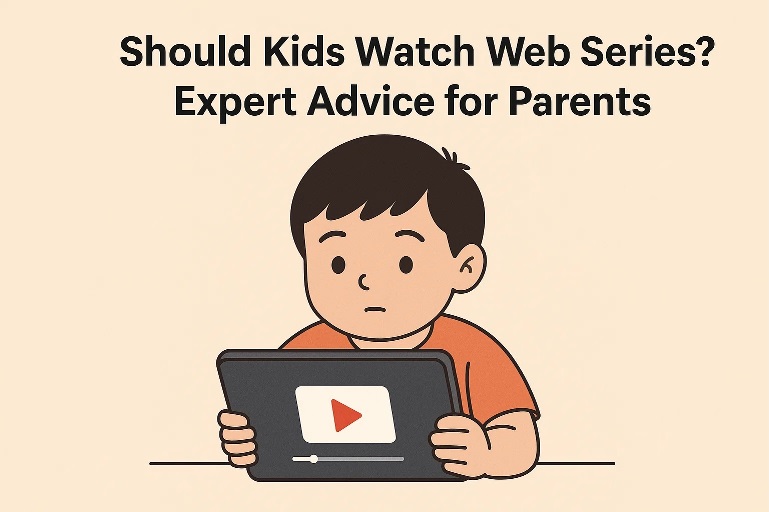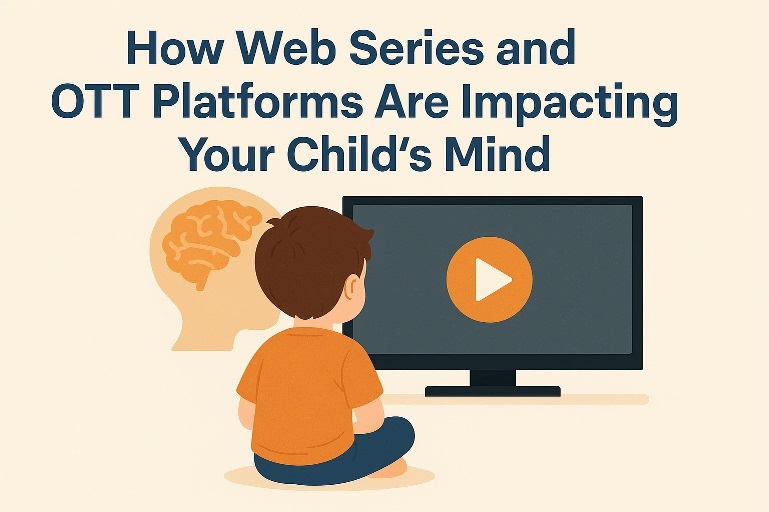In recent years, web series and online streaming platforms have become extremely popular among all age groups, including children and teenagers. With a wide range of shows available on platforms like Netflix, Amazon Prime, Disney+ Hotstar, and others, it is natural for parents to wonder: should kids watch web series? What are the effects of binge-watching on their development and daily lives? As a parent and educator, I understand these concerns and would like to share expert advice to help you make informed decisions.
Understanding the Appeal of Web Series
Web series offer engaging content with interesting stories and relatable characters. For children, this can be a source of entertainment, education, and even social learning. Many web series are designed specifically for kids, promoting values such as friendship, teamwork, and problem-solving. However, the challenge lies in the sheer variety of content available, much of which is created for adults and may contain inappropriate language, violence, or themes not suitable for children.
Screen Time and Its Impact on Children
According to the World Health Organization (WHO), children aged 2 to 5 should not have more than one hour of screen time per day, and for children older than 5, screen time should be limited and balanced with physical activity. Excessive screen time has been linked to problems such as reduced attention span, sleep disturbances, obesity due to inactivity, and impaired social skills.
A study published in JAMA Pediatrics in 2022 highlighted that children who spent more than two hours a day on screen-based activities were more likely to exhibit symptoms of anxiety and depression. The same study emphasized the importance of content quality and parental involvement in media consumption.
The Risk of Binge-Watching
Binge-watching is a phenomenon where viewers watch multiple episodes of a series in one sitting. While this is common among adults, it can be especially problematic for children. Binge-watching may lead to decreased physical activity, irregular sleep patterns, and reduced time for homework or outdoor play.
Experts recommend that children’s viewing should be spread out and balanced with other daily activities. For example, instead of letting your child watch an entire season over a weekend, allow one or two episodes a day as a treat or reward.
Guidelines for Parents
Know the Content: Always preview shows before allowing your child to watch. Platforms often have parental controls and age-appropriate ratings that can help filter unsuitable content.
Set Time Limits: Establish daily screen time limits and encourage breaks during viewing sessions. Use timers or parental control apps to help enforce these limits.
Encourage Discussions: Talk to your child about the shows they watch. Ask questions about the story and characters to help develop critical thinking and media literacy.
Promote Alternative Activities: Encourage reading, sports, hobbies, and family time to create a healthy balance with screen use.
Model Good Behavior: Children often imitate parents, so limit your own screen time and engage in offline activities together.
Positive Examples
There are many web series that are both entertaining and educational. Shows like “Mighty Little Bheem,” “Word Party,” or “Ask the StoryBots” combine fun storytelling with learning opportunities suitable for young children. For older kids, series that promote creativity, science, or history in an engaging way can be good choices.
Web series are a part of modern life, and completely banning them may not be practical or necessary. The key lies in thoughtful moderation, careful selection of content, and active parental involvement. When managed well, watching web series can be an enjoyable and sometimes educational experience for children. As parents, staying informed and setting clear boundaries will help ensure that screen time supports your child’s growth rather than hinders it.
At IndiaTutor.in, we believe in balanced and mindful use of technology alongside education. If you have concerns about your child’s screen habits or want guidance on integrating digital learning safely, feel free to explore our resources and tutoring options.
By Nidhi Mehta – Founder – IndiaTutor.in


